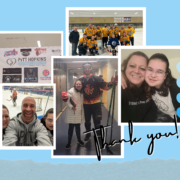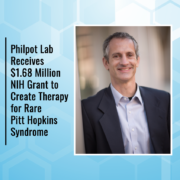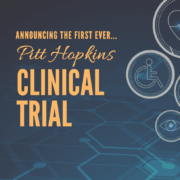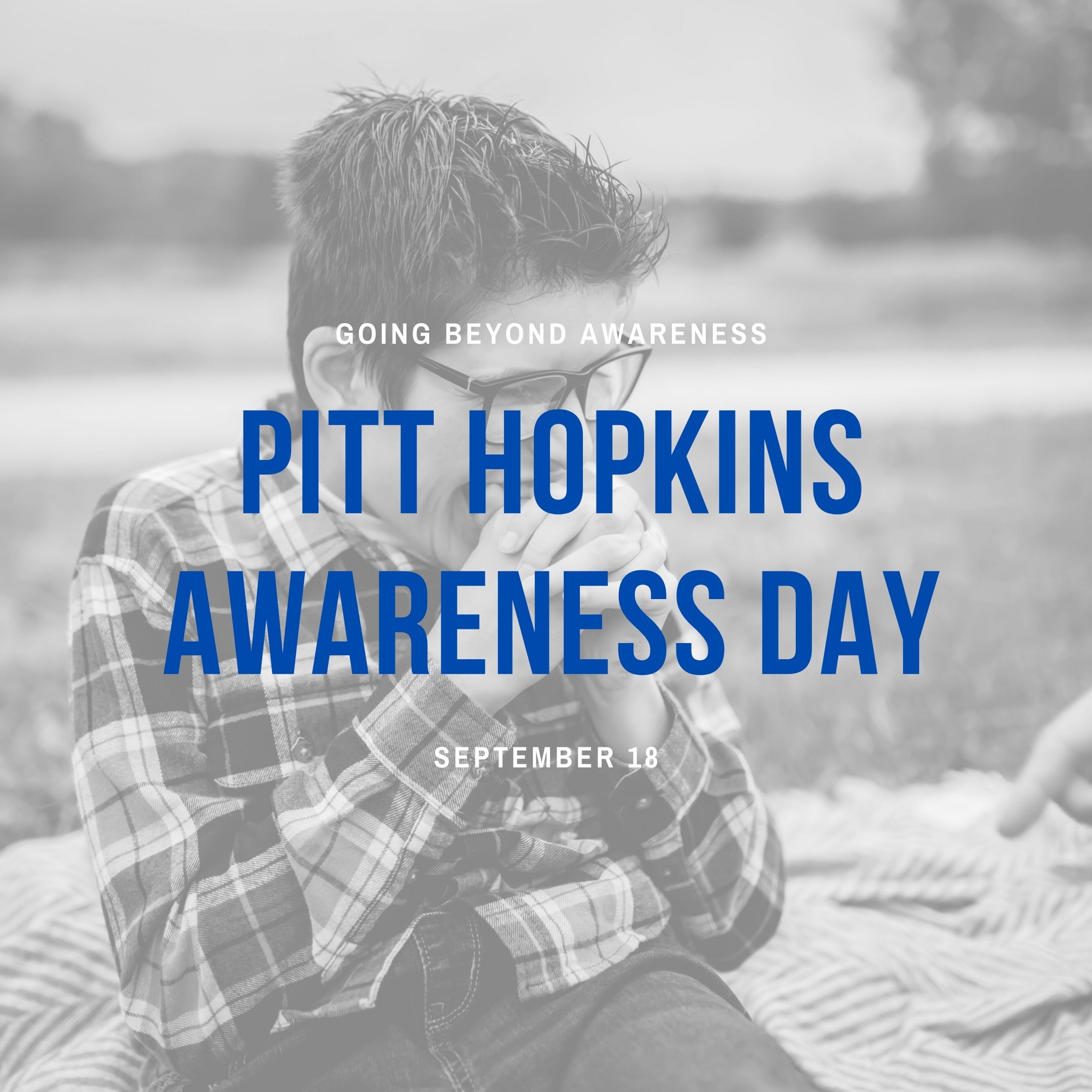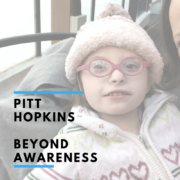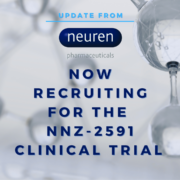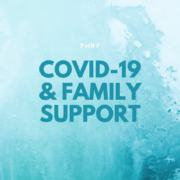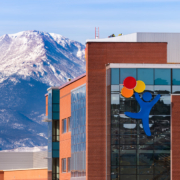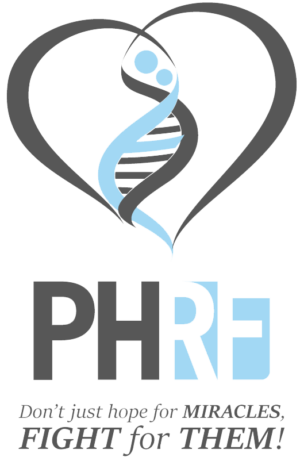2015 PHRF Symposium and Family Conference
The Pitt Hopkins Research Foundation hosted our second Scientific Symposium and first ever Parent Conference at American University in Washington D.C. September 10-12, 2015. It was a fantastic event, full of great information and a wonderful time for families to spend together. Thursday, September 10, researchers presented on their research including talks on Discovery of Compounds & Signaling Pathways Regulating TCF4 Expression in Human Stem Cell-Derived Neuronal Cell Models and Tcf4 regulates synaptic plasticity, DNA methylation, and memory function. The researchers were able to have open collaboration to develop strategic aims for the coming year. It was a very exciting and encouraging!
Friday researchers gave lay talks to parents and family members, the clinics and study site gave an update, and Dr. Kathleen Holton gave a talk on Potential Dietary Implications for Pitt Hopkins Syndrome. In the afternoon parents had break out sessions where we discussed the triumphs as well as frustrations that go along with Pitt Hopkins Syndrome. Speaking with other parents is an invaluable resource that we all were very grateful to experience.
Saturday was the AAC conference. Dr. Caroline Ramsey Musselwhite and Dr. Gretchen Hanser definitely did not disappoint! Many resources were shared and parents walked away with a wealth of knowledge on how to get started using AAC with their Pitt Hopkins children. A parent described this day as “life changing!”.
– 70+ PTHS family members
– 30+ scientists/researchers/doctors
– 5 pitt hopkins children/adults
– 4 different countries represented
To sum up the week, I love this quote from a parent who attended the conference…”These days with you guys were awesome and worth every penny, every minute in the air and all the logistic planning with people taking care of (our child) while we were gone. Thank you for the warm welcome and for having us, to be a part of the PTHS-community during these days was so great, to finally belong somewhere and finding hope, information and new friends who will understand. And although you are very far from us in distance, you are close to our hearts.”
SCHEDULE:
Wednesday evening, September 9th:
6:00pm-7:00pm: Meet and greet happy hour, Omni Shoreham Hotel — Marquee Bar and Lounge
2500 Calvert St NW, Washington, DC 20008
Thursday, September 10th:
Full Day: Scientific talks from all six of our PHRF funded researchers.
8:30 – 9:15 a.m Breakfast in atrium of Mary Graydon Center of American University
9:00 – 9:10 a.m. Welcome, Audrey Davidow Lapidus, President, Pitt Hopkins Research Foundation
9:10 – 9:15 a.m. Opening Remarks, J. David Sweatt, Ph.D., Professor
SESSION I, Session Chair: Krista Hennig, PhD
9:15 – 9:40 a.m. Meeting challenges in Pitt-Hopkins Syndrome and other neurodevelopmental disorders, Hazel Sive, PhD
9:40 – 10:05 a.m. Tcf4 regulates synaptic plasticity, DNA methylation, and memory function, Andrew Kennedy, Ph.D. (Sweatt Lab)
10:05 – 10:30 a.m. Identification of genetic and molecular targets for Pitt-Hopkins therapeutics, Courtney Thaxton, Ph.D. (Philpot Lab)
10:30 – 10:45 a.m. Questions for Session 1 Talks
10:45 – 11:00 a.m. Break, Coffee and refreshments available
SESSION II, Session Chair: Andrew Kennedy, PhD
11:00 – 11:25 a.m. Uncovering altered gene expression pathways during neuronal development in Pitt-Hopkins syndrome, Sarah H. Elsea, PhD, FACMG
11:25 – 11:50 a.m. Toward Novel Therapeutics for Pitt-Hopkins Syndrome: Discovery of Compounds & Signaling Pathways Regulating TCF4 Expression in Human Stem Cell-Derived Neuronal Cell Models, Krista Hennig, Ph.D. (Haggarty Lab)
11:50 – 12:15 p.m. Transcription factor 4 (TCF4) Isoforms Regulate the Expression of Different Genes in Neuroblastoma cells, Daniel R. Marenda, PhD
12:15 – 12:30 p.m. Questions for Session 2 Talks
12:30 – 1:15 p.m. Lunch
SESSION III, Session Chair: Courtney Thaxton, PhD
1:30 – 1:55 p.m. Transciption Factor 4 (TCF4) regulates the intrinsic excitability and spatial distribution of pyramidal neurons in the prefrontal cortex, Brady J. Maher, Ph.D., Assistant Professor
1:55 – 2:15 p.m. A Study of the Anatomical differences in the TCF4 Mouse Model of Pitt Hopkins Syndrome, Sofia Pauca
2:15 – 2:30 p.m. Questions for Session 3 Talks
2:30 p.m. Closing Remarks to the General Audience, Theresa Pauca, PHRF Vice President
SESSION IV Break Out Collaboration Session, Session Chair: David Sweatt, PhD
3:00 – 4:15 p.m. Open collaboration session for all funded researchers to develop strategic priorities for Pitt Hopkins research. Interested researchers not funded by PHRF are encouraged to attend as well.
4:15 – 4:30 p.m. Brief presentation of experimental priorities and strategic aims for coming year
5:30 – 7:30 p.m. Hosted Cocktail Reception for families and researchers at Ardeo + Bardeo Restaurant–rooftop, 3311 Connecticut Avenue, Washington, DC 20008
Friday, September 11th:
Morning: Nontechnical (lay) talks by PHRF Researchers for families, updates by physicians from Pitt Hopkins Clinics, and parent question and answer session with researchers and physicians. Afternoon: Breakout sessions for parents.
8:30 – 8:40 a.m. Welcome, Audrey Davidow Lapidus, President, Pitt Hopkins Research Foundation
SESSION I
8:45 – 9:05 a.m. Introduction to Genetics: The genetics of PTHS and genetically engineered mice, Andrew Kennedy, Ph.D. (Sweatt Lab), Department of Neuroscience and Evelyn F. McKnight Brain Institute, University of Alabama at Birmingham
9:05 – 9:15 a.m. Pitt-Hopkins Syndrome Stem Cell Models: From Families To The Future, Stephen Haggarty, PhD and Krista Hennig, Ph.D.
Massachusetts General Hospital, Harvard Medical School
9:15 – 9:25 a.m. Understanding gene expression pathways in Pitt-Hopkins syndrome, Joseph Alaimo, PhD (Elsea Lab), Department of Molecular and Human Genetics, Baylor College of Medicine
9:25 – 9:30 a.m. Questions
9:30 – 9:40 a.m. New views on genetic disorders: helpful lessons from the zebrafish, Jasmin McCammon, PhD (Sive Lab), Whitehead Institute
9:40 – 9:55 a.m. Questions
9:55 – 10:05 a.m. Searching for Seizures and Biomarkers of Brain Function in Pitt Hopkins Syndrome, Craig Powell, MD, PhD, FAAN, FANA, Departments of Neurology & Neurotherapeutics, Psychiatry, University of Texas Southwestern Medical Center
10:05 – 10:15 a.m. Using models of Pitt-Hopkins Syndrome to identify therapeutic targets, Brady Maher, PhD, Lieber Institute for Brain Development, Johns Hopkins Medical School
10:15 – 10:25 a.m. Questions
10:30 a.m. Break
10:45 – 11:00 a.m. Making Sense of Cognitive and Behavioral Testing in Pitt-Hopkins and other Neurogenetic Disorders, NIMH Pitt Hopkins Study Site, Drs. Audrey Thurm and Armin Razanahan, National Institute of Mental Health
11:00 – 11:30 a.m. Clinic Update/Q.A. Dr. Sailaja Golla, UT Southwestern
11:30 – 12:00 p.m. Potential Dietary Implications for Pitt Hopkins Syndrome, Kathleen Holton, PhD, MPH, Department of Health Studies, Center for Behavioral Neuroscience, American University
12:00 p.m. Lunch
1:00 – 1:50 p.m. Discussion, Q&A
1:50-2:00 p.m. Cyber Support, Sue Routledge
2:00 – 4:00 p.m. Parents’ Breakout Groups
4:00 p.m. Close
8:00 p.m. Cocktails at Bethesda Doubletree Hotel Bar
Saturday, September 12th:
Full Day: An incredible Literacy and Augmentative and Alternative Communication (AAC) conference taught by two of the best communication people in the business, Dr. Caroline Ramsey Musselwhite, Ed.D, CCC/SLP and Dr. Gretchen Hanser, PhD, OTR! This day is open to the general public at the speakers typical conference price of $100 per day. Saturday’s Topic: Literacy for All! Get Ready – Get Set – Read, Write, GO! When we say “all,” we mean “ALL.” ALL students can make progress with learning to read and write – including students who cannot talk and those who cannot hold a book or a pencil. Exciting research in the past two decades has found that with the right instruction and the right tools, students with significant disabilities can develop as readers and writers. This workshop will provide a broad overview of the “how.” A variety of meaningful reading and writing activities will be shown, with an emphasis on early literacy development. Augmentative & alternative communication (AAC), appropriate books, “alternative pencils” that don’t require hand use, and other forms of assistive technology will be highlighted throughout. Videos and work samples will be shown of real students. Sample goals and ways of assessing change will be shared.
A second day of AAC is offered on Sunday, at the same location, with Dr. Caroline Ramsey Musselwhite, Ed.D, CCC/SLP and Dr. Gretchen Hanser, PhD, OTR. The topic for this day is: Emergent Balanced Literacy And AAC – Apps Included.
EARN FREE REGISTRATIONS AND HOTEL STAYS **
All Pitt Hopkins families are invited to FUNDRAISE for the PHRF, to help offset some of the costs for the Symposium and/or Conference. In order to earn these rewards, email phrf-fundraising@pitthopkins.org by August 30, 2015 to register your qualified fundraiser. If you participate in another PHRF fundraising event and raise or donate a minimum of $1500 on your family’s behalf, you are eligible for these rewards, but you are responsible for tracking and submitting the donation receipts in one spreadsheet. The event organizer should not be held responsible. If multiple families are holding a joint event, the rewards for the amount raised will be split fairly among the families. Events including Give Rare or MDBR can be used to earn rewards, too. In the instance that one PTHS family holds a fundraiser to support another PTHS family and donates to the second families page, the fundraising dollars should go to the family who actually raised the money. Fundraising dollars are non-transferable. After the conference, please submit your receipts for registration and/or hotel room by October 1, 2015, and you will be reimbursed for these charges within one month, to phrf-fundraising@pitthopkins.org. If you have any questions at all, please feel free to email Audrey or Theresa at phrf-fundraising@pitthopkins.org.
• $1,500 – $2,499 raised earns one free registration day, and one night hotel stay
• $2,500 – $4,999 raised earns two free registration days, and one night hotel stay
• $5,000 – $7,499 raised earns one free registration day and two night hotel stay
• $7,500 – $9,999 raised earns two free registration days and two night hotel stay
• $10,000 and over raised earns three free registration days and three night hotel stay
**This applies to any fundraisers held in the 2015 calendar year.

